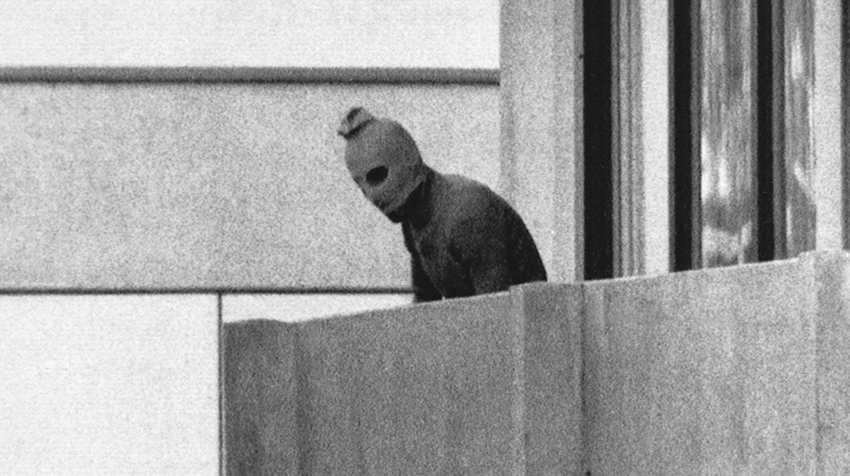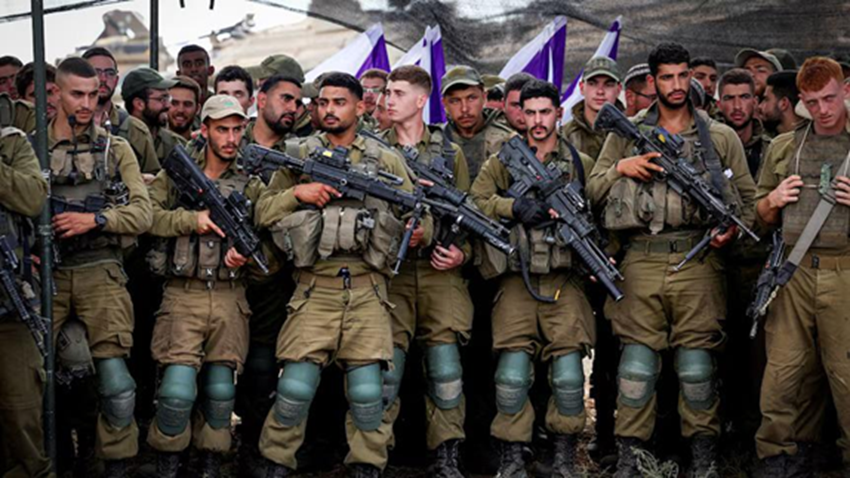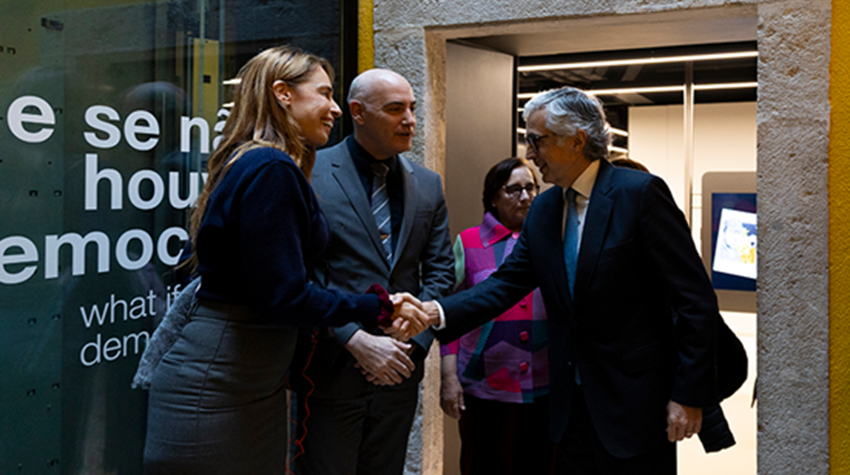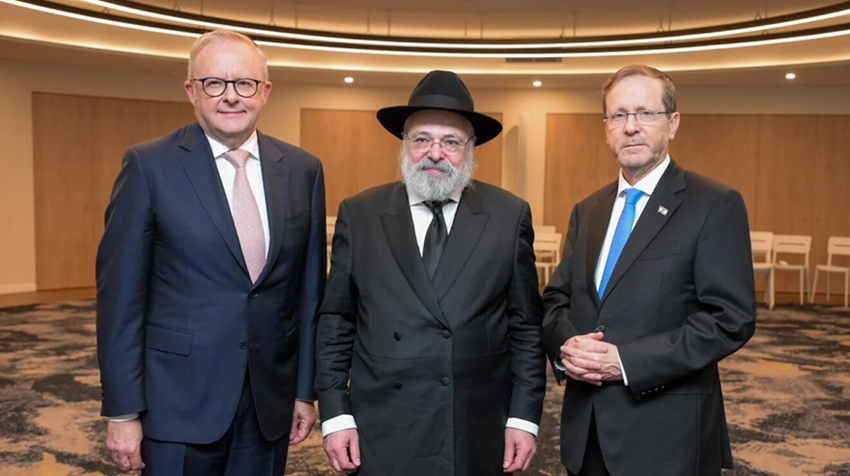A Palestinian terrorist appearing on a balcony in the Munich Olympic Village. Credit: Fairfax Media—The Sydney Morning Herald/Getty Images
On September 5, 1972, during the Munich Olympic Games, eight members of the Palestinian terrorist group Black September invaded the Olympic Village and took eleven Israeli athletes hostage. The operation resulted in the immediate death of two hostages, and after a failed rescue attempt by the German authorities, all the other hostages were killed, along with one German police officer and five of the terrorists.
The live coverage of the incident was a milestone in television history, marking the first time a terrorist crisis was broadcast in real time to the entire world. It is estimated that around 900 million people followed the events on TV.

Photographers gather near the site where the Israeli team was held hostage during the Munich massacre. Credit: Keystone/Hulton Archive/Getty Images
The failures in the German authorities’ response were evident. The local police, inexperienced in hostage situations, improvised a rescue plan that was compromised by the live broadcast, allowing the terrorists to adjust their actions. In addition, the lack of specialized counterterrorism units contributed to the operation’s failure.
The massacre led to significant changes in security policies for international sporting events, with a greater emphasis on crisis preparedness and coordination among different security agencies.


































